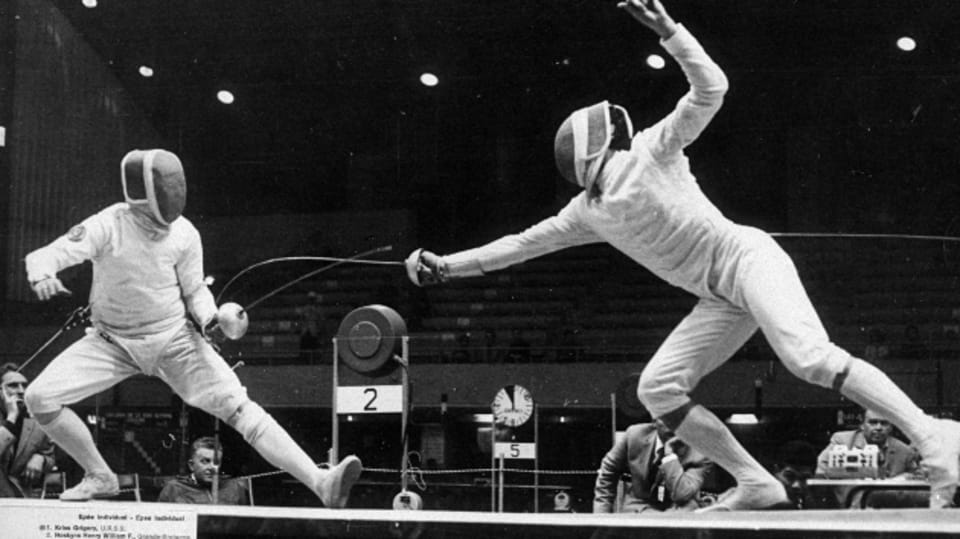
Kriss was a soldier, born in Ukraine and now, at 23, making his debut in the Games. His impact was immediate, though, with six wins and a tie in his first seven bouts. That was enough to earn him a place in the quarter-finals, and the respect of his opponents.
Among his rivals in the second pool of that next round competition was the British fencer Henry Hoskyns, known as Bill to just about everyone. He was an unlikely fencing champion, being a fruit farmer from the rural British county of Somerset, but he had developed a versatility that saw him compete with all three fencing weapons at both the 1956 and 1964 Games. The epee, though, was his most successful choice.
In their quarter-final clash, it was Kriss who prevailed 5-2. He was on his way to four victories in six bouts in the round, the same record that Hoskyns ended up with. Both men moved forward to the semi-finals, and then on to the final pool itself.
Their bout was notable because there were four straight double hits, which is where both fencers hit each other at the same time. But Kriss was – just – the more accomplished fencer and held on to win both the bout, and the gold medal. Hoskyns took silver, the high point of a sporting career that would continue until the 1976 Games, in which he competed at the age of 45. Kriss later won two silver medals in Mexico City, and a further bronze in Munich.
